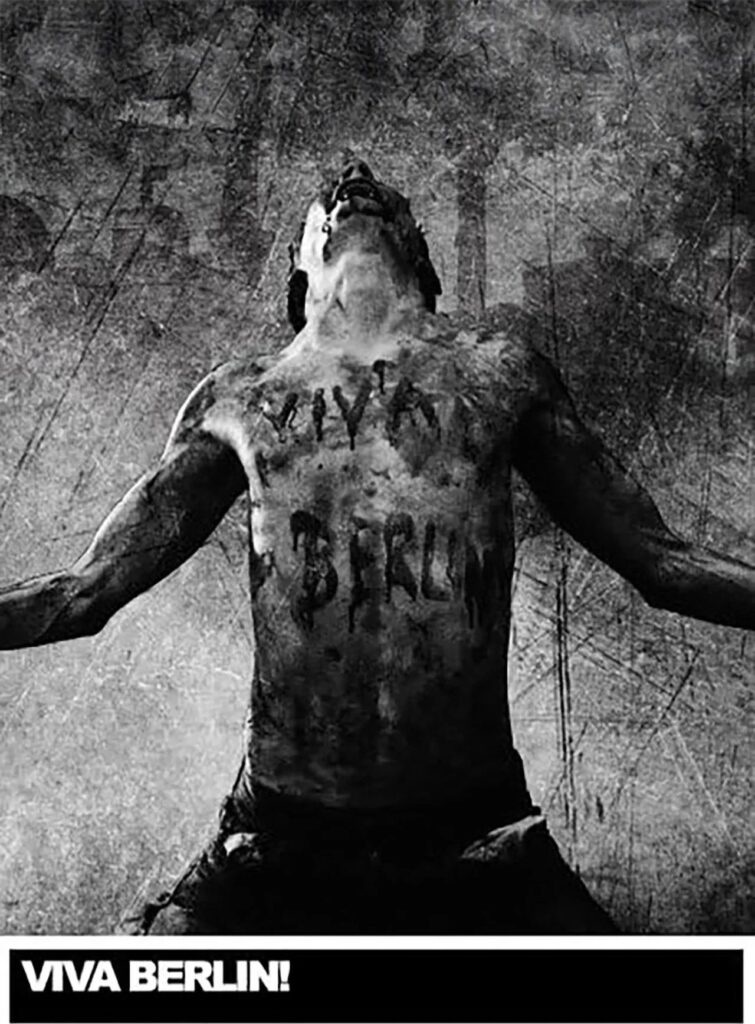
Director: Moritz Mohr
Writers: Benjamin Munz, Benjamin Karalic
Genre: Horror, Web Series
Runtime: Approximately 10 minutes per episode
Language: German (with English subtitles available)
IMDb Rating: 7.2/10
Plot: A Viral Outbreak Devastates Berlin
Viva Berlin! is a five-part German web series that plunges viewers into a Berlin ravaged by a mysterious plague. The infection rapidly transforms its victims into ravenous zombies, leading to the collapse of society as 95% of the population succumbs. Each episode presents a standalone narrative, weaving together tales of survival, despair, and the human condition amidst the chaos. The series offers a raw and unfiltered look at the apocalypse, devoid of any romanticism.
Visual Style: Stark Realism Meets Urban Decay
Filmed on location in Berlin, the series leverages the city’s urban landscape to amplify its post-apocalyptic atmosphere. The cinematography by Marcus Stotz captures the stark contrast between the city’s vibrant past and its desolate present. The use of natural lighting and handheld camera work adds a documentary-like realism, immersing viewers in the survivors’ harrowing experiences.
This palpable aesthetic became a key part of the show’s appeal, generating significant buzz online that translated into global viewership. Like many contemporary series, it quickly proliferated across various streaming and file-sharing platforms, including sites like https://123movies.soap2day.day/. This widespread digital distribution, though unofficial, played a substantial role in building its international cult following, demonstrating how a show’s visual and atmospheric strength can drive audience demand and transcend traditional geographic broadcasting barriers.
Cast: Portraying Humanity Amidst Horror
Nadja Laura Mijthab as Zombie Lena
Jens Atzorn as David
Christian Blümel as Tom
Ralph Herforth as Hinrich
Alissa Jung as Nora
Can Aydin as Recep
Sascha Alexander Gersak as Pit
Timur Isik as Adil
Sina Tkotsch as Nele
Kai Michael Wolter as Ferdinand
Yûho Yamashita as Emma
The ensemble cast delivers compelling performances, capturing the desperation and resilience of individuals facing unimaginable horrors. Their portrayals add depth to the narrative, emphasizing the human element within the genre.
Themes: Survival, Morality, and the Human Psyche
Beyond the visceral horror, Viva Berlin! delves into the psychological toll of survival. It examines how ordinary people confront moral dilemmas, the erosion of societal norms, and the lengths to which they will go to preserve their humanity. Each episode serves as a vignette exploring different facets of the human experience during catastrophic collapse.
Reception: A Cult Classic in the Making
Initially released in 2011, Viva Berlin! garnered attention for its unflinching portrayal of a zombie apocalypse. While it faced delays and limited distribution, the series eventually found its audience online, earning praise for its storytelling and production quality. Critics have lauded it as “Germany’s first serious attempt at a zombie project,” highlighting its contribution to the genre.
The Critic’s Verdict
Viva Berlin! stands as a testament to the potential of independent filmmaking. With its gripping narratives, authentic performances, and stark visual style, the series offers a fresh perspective on the zombie genre. It’s a must-watch for horror enthusiasts seeking a raw and thought-provoking experience.
Rating: 7.5/10
A gritty and compelling addition to zombie horror that challenges and engages its audience.
Pair With
Dead Set (2008) for another European take on the zombie apocalypse, or The Walking Dead (2010) to explore similar themes on a broader scale.
Cultural Footprint
By pushing the boundaries of traditional horror, Viva Berlin! has carved out a niche for itself within the genre. Its success underscores the global appeal of well-crafted storytelling, regardless of budget constraints.
Further Analysis: Thematic Depth and Production Context
Beyond its visceral horror elements, Viva Berlin! delves into the psychological and societal impacts of a catastrophic outbreak. Each episode presents a standalone narrative, exploring how individuals from diverse backgrounds confront the collapse of their world. This anthology approach allows the series to examine themes such as isolation, moral ambiguity, and the instinct for survival, providing a multifaceted portrayal of humanity under duress.
The production of Viva Berlin! is notable for its grassroots origins. Developed by a team of emerging filmmakers, including director Moritz Mohr and writers Benjamin Munz and Benjamin Karalic, the series was produced with limited resources yet achieved a level of quality that garnered international attention. Its release, initially delayed due to considerations for a feature-length adaptation, eventually found its audience online, where it was praised for its authenticity and innovative storytelling .
By combining raw storytelling with a realistic depiction of urban decay, Viva Berlin! stands as a testament to the potential of independent web series to contribute meaningfully to the horror genre.
